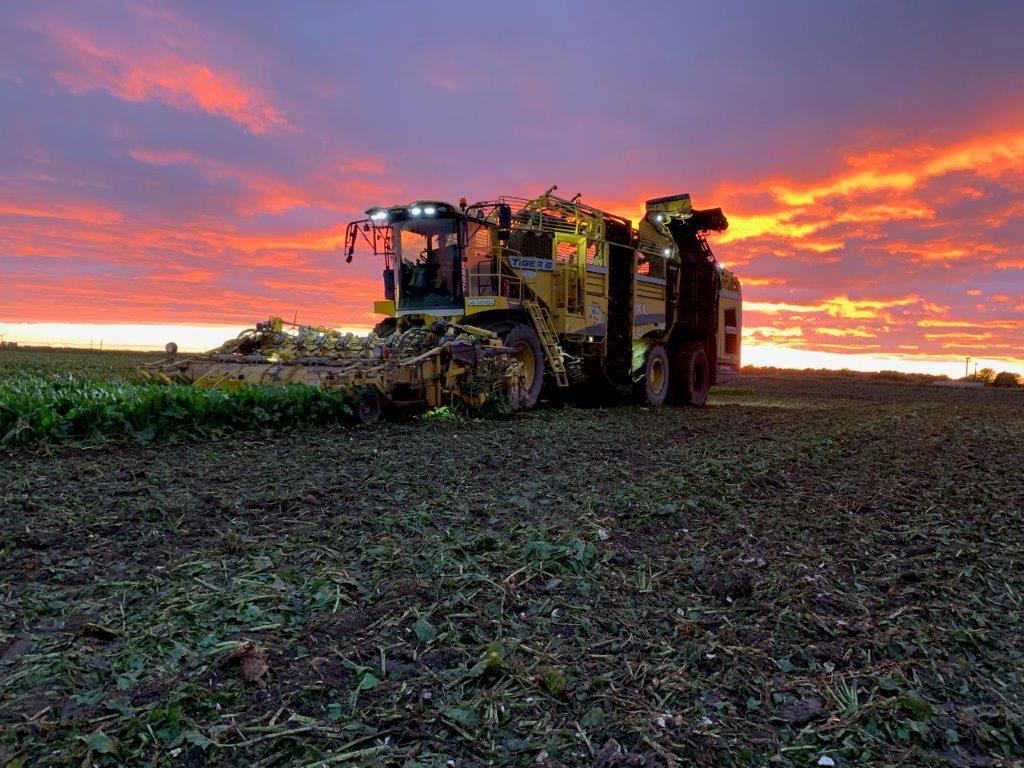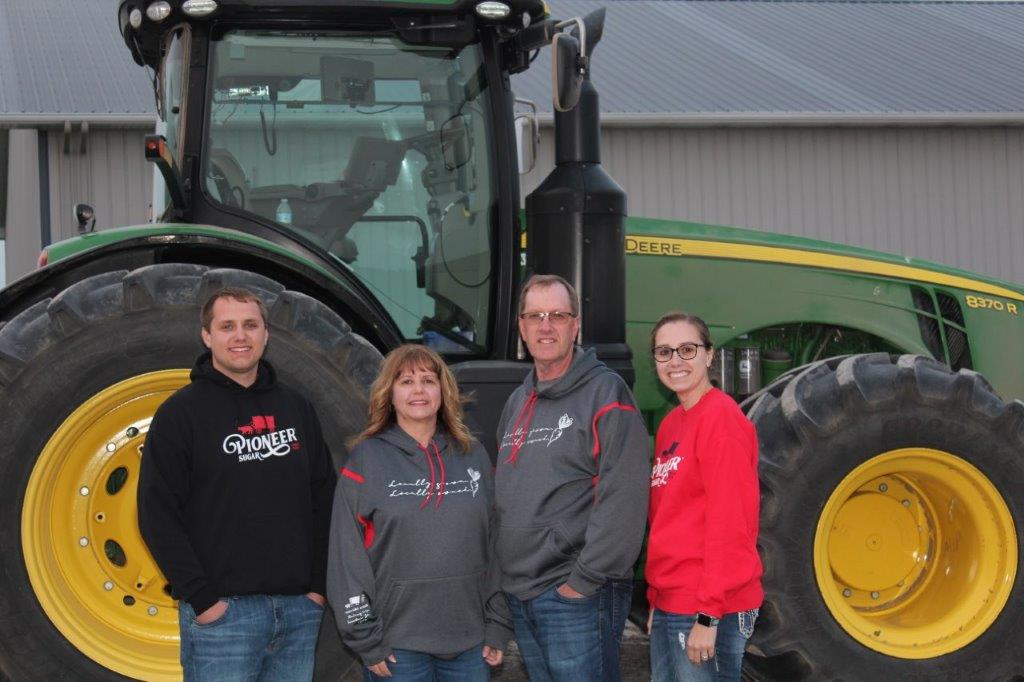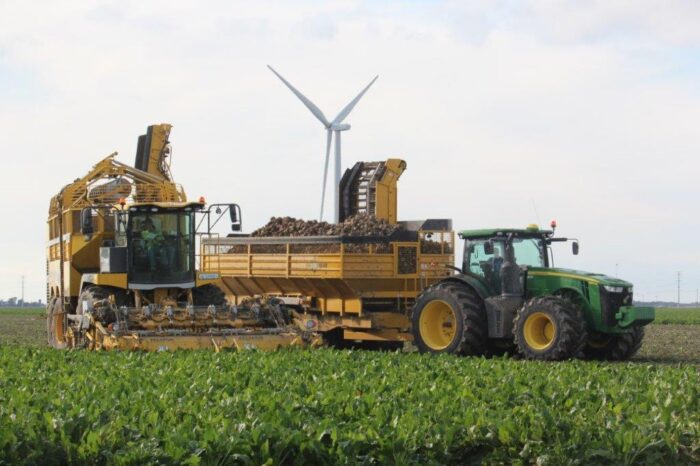Joel Gremel’s great-grandparents began farming in the thumb of Michigan in the early 1920s. They grew about 10 acres of sugar beets using horses near Sebewaing, a small community along the shoreline of the Saginaw Bay. Joel’s father Orville followed in the late 1930s and his uncle Jim joined the farming operation in the late 1950s. This spring J&L Gremel Farms, which consists of Joel and his wife Lyndsay, adult children Erica and Grant, and cousin Matt Gremel, will plant 500 acres of sugar beets.
“Working the same land our great-grandparents began with over 100 years ago is a very satisfying feeling,” Joel said. “We want to continue what they started and strive to continually improve our farming practices and sustain the quality of the land.”
 Joel knew he wanted to farm from a young age.
Joel knew he wanted to farm from a young age.
“Some of my favorite memories include riding in the beet truck with my Dad to take the sugar beets from the field to the local factory during harvest,” he said. “As a kid, I couldn’t wait for fall! I went with Dad every chance I had, and always looked forward to riding in the combine during the wheat, corn and dry bean harvest.”
Joel began helping on the farm when he was 13 years old.
“That was when Dad started letting me run some of the equipment, and it was the best on the job training and experience anyone could ask for,” he said. “I have always loved spending time in the tractor, and it is definitely my ‘happy place.’”
After graduating from high school, Joel attended one year of college at Michigan State University before taking over the family farm.
“Dad retired then and I have been running all aspects of the farm ever since,” he said.
Joel’s 40-year farming career has been filled with many challenges and rewards.
“The most challenging part of sugar beet farming is finding the balance between the cost and amount of work to grow them versus the income potential,” he said. “However, the greatest reward is seeing your field with a beautiful stand of disease-free sugar beets ready to be harvested.”
Sugar beets are unique because of the many by-products they produce, according to Joel.
“Not only can a sugar beet be made into granulated sugar, but it also has co-products of molasses, beet pulp, and betaine used in the poultry industry. There is also ‘beet juice’ used in the cattle industry for liquid feed and as ice melt on the roadways,” he said.
In addition to sugar beets, J&L Gremel Farms also grows corn, white winter wheat, dry edible beans and occasionally soybeans. Sustainability is always one of their farming operation’s top priorities.
“We use cover crops each year to help preserve our land, whether that is cereal rye after corn or sugar beets, or red clover frost seeded into our wheat,” said Joel. “Cover crops are a great way to prevent erosion and help build organic matter in the soil. We also use variable rate fertilizer and seed prescriptions to put the right amounts where the soil needs it.”
Agricultural technology has come a long way since Joel’s great-grandparents used horses to plant their first sugar beet crop.
“Today our farm is part of a harvest group with four other farms that all work together to harvest our sugar beets. Our group uses self-propelled Holmer and ROPA harvest equipment,” said Joel. “This equipment allows us to pile the beets on the edge of the field and pick them up with a field loader, which helps to minimize truck traffic in the field. Each farm helps contribute to the group to get the sugar beets harvested.”
Sugar beets are a tradition and way of life in Sebewaing.
“The town is home to one of Michigan Sugar Company’s four sugar factories, and sugar beets are a staple crop in our community,” said Joel. “The Michigan Sugar Festival is also held in Sebewaing every June.”
It is a way of life that Joel and Lyndsay are proud to pass on to their adult children.
“Farming is in our blood. The farm has been passed down for three generations, with our kids, Erica and Grant, now being the fourth generation,” said Joel. “Erica and Grant are both graduates of Michigan State University’s College of Agriculture and Natural Resources. Erica works full time on the farm after six years in ag retail. Grant is an agronomy consultant at the local co-op and helps on the farm when time permits.”
The Gremels take pride in their family’s legacy of growing sugar beets and producing a high-quality product for American consumers.
“It is our sole responsibility as farmers to put quality food on tables across America, with sugar being a main and favorite ingredient for many,” Joel said. “Crops that are grown right here on our farm feed people across the country, and that is something we are very proud of as a family. We hope our children and grandchildren will be able to continue to be sugar beet farmers in America for many years to come.”






Get Social with #MoreToSugar